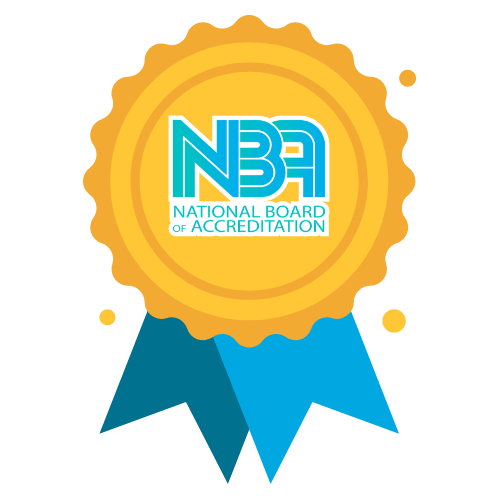Program Educational Objectives (PEOs)
- PEO 1: Prepare graduates to have knowledge in Mathematics, Science and Mechanical Engineering for formulating, solving and analyzing the Engineering problems for a successful career in Mechanical Engineering.
- PEO 2: Prepare graduates to have strong theoretical and practical knowledge in Mechanical Engineering, contributing to society through, innovation, entrepreneurial skills and leadership with a global outlook.
- PEO 3: Inculcate teamwork, communication, interpersonal skills and ethical approach adapting to changing environments of engineering/technology Program Specific Objectives (PSOs)
Program Specific Outcomes (PSOs)
- PSO 1: Understand and apply fundamental concepts of design, production and thermal engg. to solve engineering problems.
- PSO 2: Use modern IT tools for design & analysis of mechanical and thermal systems/components.
- SO 3: Adopt inter-disciplinary approach for solving real-life industrial and societal problems.
Programme Outcomes (POs)
- PO 1 Engineering knowledge- : Apply the knowledge of mathematics, science, engineering fundamentals, and an engineering specialization to the solution of complex engineering problems.
- PO 2 Problem analysis : Identify, formulate, review research literature, and analyze complex engineering problems reaching substantiated conclusions using first principles of mathematics, natural sciences, and engineering sciences.
- PO 3 Design/development of solutions: Design solutions for complex engineering problems and design system components or processes that meet the specified needs with appropriate consideration for the public health and safety, and the cultural, societal, and environmental considerations.
- PO 4. Conduct investigations of complex problems:Use research-based knowledge and research methods including design of experiments, analysis and interpretation of data, and synthesis of the information to provide valid conclusions.
- PO 5.Modern tool usage:Create, select, and apply appropriate techniques, resources, and modern engineering and IT tools including prediction and modeling to complex engineering activities with an understanding of the limitations.
- PO 6.The engineer and society:Apply reasoning informed by the contextual knowledge to assess societal, health, safety, legal and cultural issues and the consequent responsibilities relevant to the professional engineering practice.
- PO 7. Environment and sustainability:Understand the impact of the professional engineering solutions in societal and environmental contexts, and demonstrate the knowledge of, and need for sustainable development.
- PO 8.Ethics:Apply ethical principles and commit to professional ethics and responsibilities and norms of the engineering practice
- PO 9. Individual and team work:Function effectively as an individual, and as a member or leader in diverse teams, and in multidisciplinary settings.
- PO 10. Communication:Communicate effectively on complex engineering activities with the engineering community and with society at large, such as, being able to comprehend and write effective reports and design documentation, make effective presentations, and give and receive clear instructions.
- PO 11. Project management and financeDemonstrate knowledge and understanding of the engineering and management principles and apply these to one’s own work, as a member and leader in a team, to manage projects and in multidisciplinary environments.
- PO 12 Life-long learningRecognize the need for, and have the preparation and ability to engage in independent and life-long learning in the broadest context of technological change.


